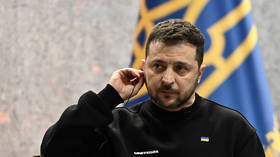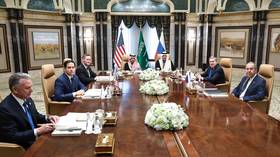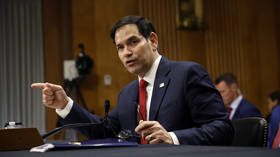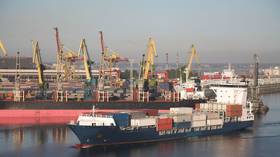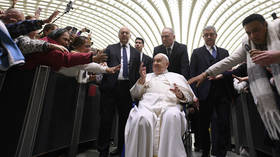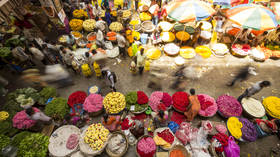Ex-Russian president suggests new name for Ukraine
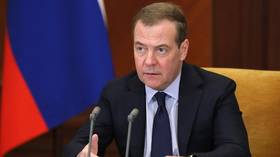
Former Russian President Dmitry Medvedev has proposed renaming Ukraine after notorious Nazi collaborator Stepan Bandera. His suggestion came after Ukrainian President Vladimir Zelensky told his government to consider a proposal to change Russia’s name.
On Friday, Zelensky instructed authorities to “thoroughly study” the proposal to officially rename Russia to ‘Moscovia.’ He was reacting to an online petition, which argued that the name ‘Russia’ provided grounds for “further encroachment” on the history of Kievan Rus, a medieval state from which both Russia and Ukraine trace their origin. Many Ukrainian nationalists claim that their homeland is the only true heir of Rus.
The name ‘Moscovia’ dates to the Grand Duchy of Moscow and was historically used by some authors to describe the Russian state.
On Saturday, Medvedev, who served as Russian president between 2008 and 2012, and currently serves as deputy chairman of the Security Council, fired back in a post on his Telegram channel. “Our response?… Only the Schweinisch Bandera-Reich,” he wrote. The word “schweinisch” means “piggish” in German.
Medvedev was apparently referencing the idolization by some Ukrainian politicians of Stepan Bandera, a World War II-era leader of the Organization of Ukrainian Nationalists (OUN). Bandera collaborated with Adolf Hitler’s government during the early stages of the Nazi invasion of the Soviet Union. He was later arrested and imprisoned by the Germans over disagreements about the future of Ukraine. After the war, Bandera fled to West Germany, where in 1959 he was assassinated by a KGB agent.
The Ukrainian Insurgent Army – the OUN’s military wing founded in 1943 – positioned itself as a guerilla force fighting both Soviet and German troops. Its agents committed multiple atrocities against Polish, Jewish and Russian civilians.
Bandera and his followers are honored as heroes in modern Ukraine, with streets and buildings named after them. Nationalists hold annual torchlit processions on Bandera’s birthday in Kiev and other cities.
